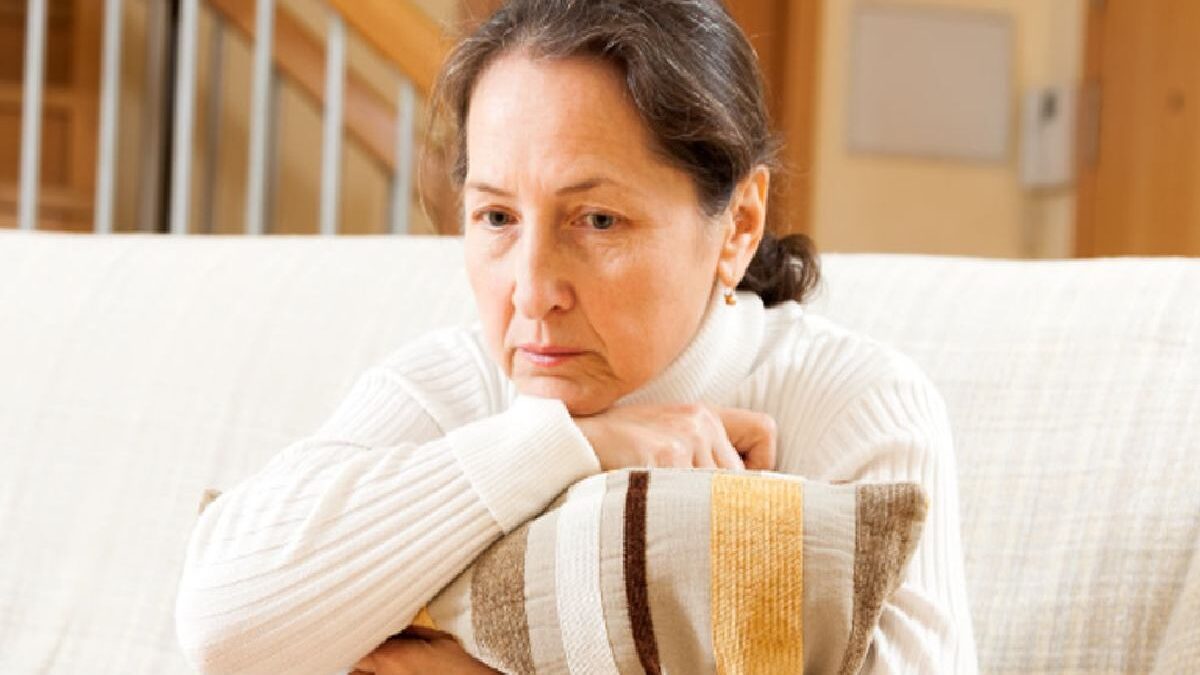Geriatric depression has wreaked havoc on thousands of vulnerable senior citizens’ lives. Unfortunately, many elderly folks wrongfully misinterpret these episodes of unrelenting hopelessness and all-consuming sadness as their golden-years norm. If you’re experiencing feelings of depression during the glory of retirement, don’t be afraid to speak up and get help.
Feel yourself sinking deeper into an emotional rut? Having troubles distinguishing between winter blues and clinical depression? Familiarize yourself with the symptoms of geriatric depression, i.e., insomnia, feelings of sadness or worthlessness, and abnormal fatigue or apathy. For those readers stepping into senescence, know that you’re more at risk of falling victim to depression symptoms if you’re a female, don’t have a sturdy support system, or if you live alone.
What’s more, the average senior-friendly lifestyle can fuel pre-existing depression symptoms. Retirement often takes away your sense of purpose and severs many of your social connections. Friends and family members’ death can also lead to unbearable grief, rendering a senior citizen immobile for months. Not to mention, the physical health problems that accompany aging can act as a risk factor for depression, too.
If geriatric depression goes unnoticed, the psychological ramifications can potentially be severe. Experts report that social isolation increases the risk of dementia or premature death.
Luckily, you can utilize a few fundamental techniques to combat geriatric depression and stay happy and healthy well into your sunset years.
Table of Contents
Stay in touch with loved ones in the digital sphere
Modern innovations can help you cope with depression symptoms by staying connected with loved ones, even if your family and friends live far away. Thanks to smartphones and other devices, your loved ones are only as far away as the tap of a button. Video chat apps let you “see” others in real-time. Additionally, social media platforms provide another option to engage with people all over the world.
Senior-friendly cell phones, such as Lively cell phones, are a smart choice if you’re looking for a new device. Since these phones are engineered with seniors in mind, they’re quick and painless to learn how to use. With large, easy-to-read screens and no unnecessary bells and whistles, it’s simple to use a senior-friendly cell phone to stay in touch with family and friends.
Talk to somebody
Talk therapy is an effective way to help lift the dark cloud of depression. Most people start by seeing a therapist for 10 to 12 weeks in hopes of working through lingering feelings and requesting advice on how to cope. If you aren’t sure where to find a therapist, ask your doctor, or run an Internet search to find mental health counseling options nearby.
Ask your doctor about medication
Your doctor can also be a helpful resource if you decide you’d like to venture down the medication route to soothe disruptive depression feelings. By definition, antidepressants are pharmaceutical medicines that treat depression. Note that depression sufferers of all backgrounds will respond to these medications differently.
That said, adopting a trial-and-error strategy to antidepressants will help you free yourself from depression’s gripping hold. While many patients remain skeptical of antidepressant’s serotonin-boosting properties, thousands of individuals diagnosed with a mental health disorder successfully use medication to treat their depression.
Once you settle on an antidepressant that alleviates this burdensome hopelessness, you might notice physical symptoms, such as improved sleep quality and appetite. Eventually, your spirits should help once your system adjusts.
Care for your physical health
Taking care of your physical body can help prevent physical illnesses responsible for your depression symptoms. Do your best to follow a balanced diet of whole foods, including heaping servings of fresh produce, whole grains, and lean proteins, while keeping processed foods to a minimum.
Get seven to nine hours of good quality sleep each night. For those chronic night owls, over-the-counter sleep aids like melatonin can provide relief to the self-proclaimed insomniac. Additionally, remember that regular exercise can boost your mood — so make a point to move your body every day.
Learn a new hobby
Many senior citizens find that their life settles into an all-too-predictable routine after retirement. To combat feelings of stagnancy, shake things up. Learn a new skill or find a unique hobby to enjoy.
Many cities provide classes specifically for senior citizens with course material covering yoga to painting to tap dance. You could also ask a friend (of any age) to teach you about something they love to do or learn a new skill yourself by using books or YouTube videos.
Finding a new hobby can spice up your life and give you something to look forward to every day. You might even make some new friends as a result — and that’s certainly something that can help combat geriatric depression.
Before you go
Don’t let tell-tale signs of geriatric depression fly under your radar. Those elderly folks swallowed up by chronic fatigue, hopelessness, and apathy should consult a medical professional. Before your very eyes, bed-ridden and lethargy-filled days will be long behind you.

